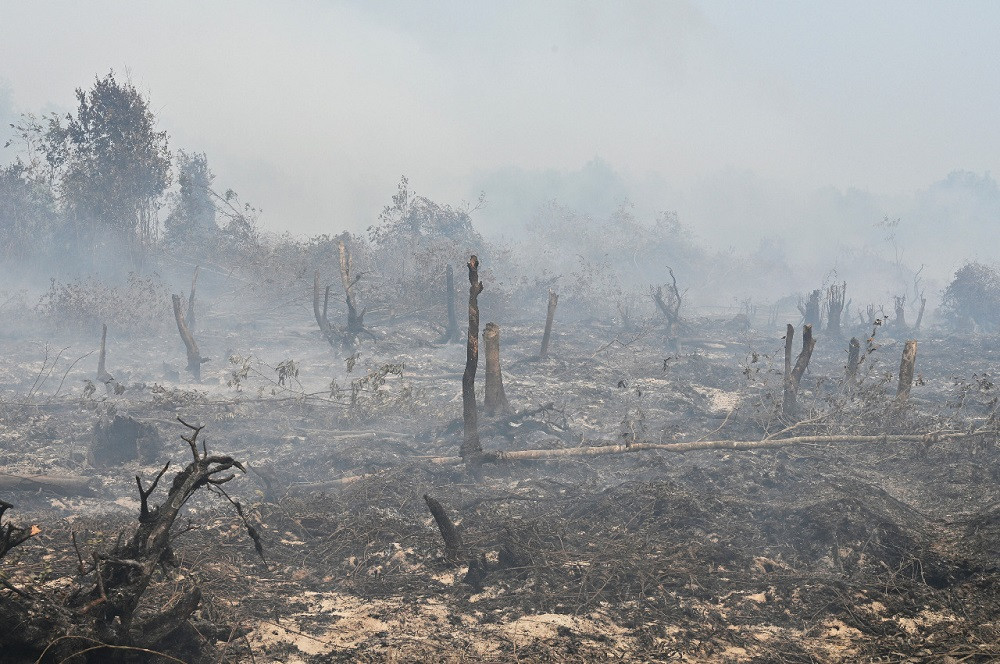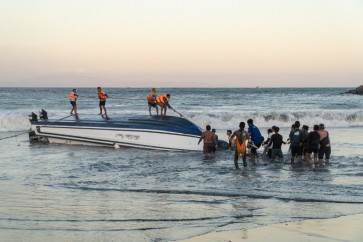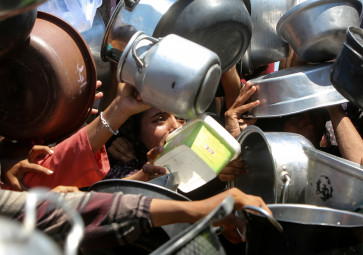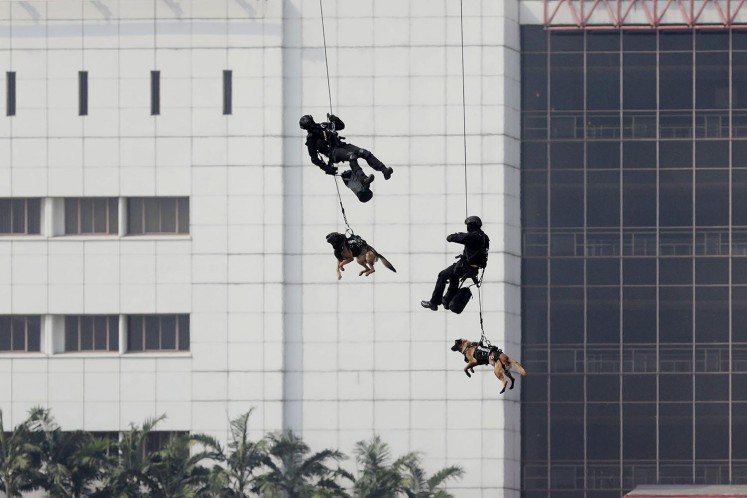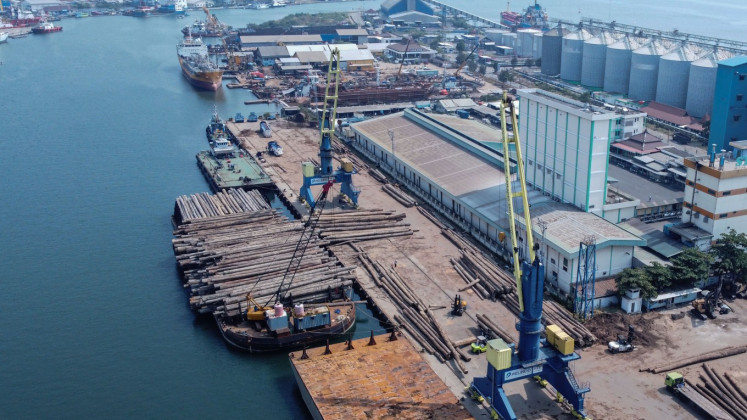Popular Reads
Top Results
Can't find what you're looking for?
View all search resultsPopular Reads
Top Results
Can't find what you're looking for?
View all search resultsMore arid dry season expected as hot spots flare up
Change text size
Gift Premium Articles
to Anyone
L
and and forest fires have started to flare up in several regions in the country during the peak of the La Nina-affected rainy season, signaling a return of the fires even though the dry season has yet to start.
Several provinces have reported instances of fires since January, most notably Riau and West Kalimantan.
Riau Disaster Mitigation Agency (BPBD) recorded on Monday forest fires covering up to 650 hectares of land in 10 out of 12 regencies and cities in the province, Antara reported. These include fires burning 100 ha of forest inside the UNESCO-recognized Giam Siak Kecil-Bukit Batu biosphere, according to kompas.com.
Overall, authorities have reported 173 instances of land and forest fires in Riau, Aceh, North Sumatra, Jambi, South Sumatra, Central Kalimantan, West Kalimantan, North Sulawesi and Papua in January alone, Coordinating Political, Legal and Security Affairs Minister Mahfud MD told a disaster-mitigation meeting last week.
Satellite surveillance by the National Institute of Aeronautics and Space (Lapan) detected seven hotspots across the archipelago in January and 153 last month, slightly lower than the 90 and 156 hotspots detected in the same period last year.
But environmentalists warn against complacency over forest fires, as the Meteorology, Climatology and Geophysics Agency (BMKG) predicts that this year’s dry season will return to its normal characteristic -- that is drier -- when the effects of the La Nina phenomenon wear off by May.
The dry season will start around June and September in most parts of the country, with low to moderate monthly average precipitation between 20 and 150 millimeters expected.
“This year’s dry season will be drier than 2020, which was affected by the La Nina,” BMKG climatology deputy Herizal told The Jakarta Post on Saturday.
Read also: Land, forest fires fact of life in seven provinces
The BMKG's early-warning system predicts that Riau has a moderate to high risk of forest fires throughout February, when the rest of the country has a low risk of fires. Riau will be at highest risk of fires from May to July, when the dry season will start. Similar risk levels are also expected in some parts of Jambi between June and July, while moderate risk is expected in Palembang and southern parts of Sumatra in the same period.
“Hence, there could potentially be more hotspots this year than there were in 2020,” Herizal said.
Despite recurring threats of forest fires annually during the dry season, which is yet to even start this year, the Environment and Forestry Ministry was quick to say that local administrations had the fires under control this year.
The two provinces, along with Jambi and South Sumatra, have recently declared a state of emergency to scale up forest fire control and warn residents, while the central government is preparing preventive measures, including artificial rain it deemed successful in preventing fires last year.
“Weather modification [cloud seeding] will start in Riau on March 9 and in West Kalimantan on March 11,” environment ministry director for forest and land fire control Basar Manullang said.
Read also: COVID-19 presents new challenges in forest fire control
The environment ministry has yet to calculate the total area of land and forest burned this year, while Basar said that hotpots were merely an indication of possible fires, not necessarily instances of land fires.
But Teguh Surya from environmental NGO Madani said that the government should avoid a business-as-usual approach to fire prevention because early analysis by Madani showed that a significant portion of land and forest could have already been burned in the past two months. Madani's modeling that also used Lapan's hotspot analysis estimated that up to 2,598 ha were burned in January and 33,746 ha in February.
Teguh said the government should engage better with civil society organizations and people living near areas prone to forest fires in its prevention campaign.
“Consistency in enforcing the law [against forest burners] throughout the year is also a must. Don’t be on-and-off like the weather,” he said, adding large concession areas particularly needed extra attention.

